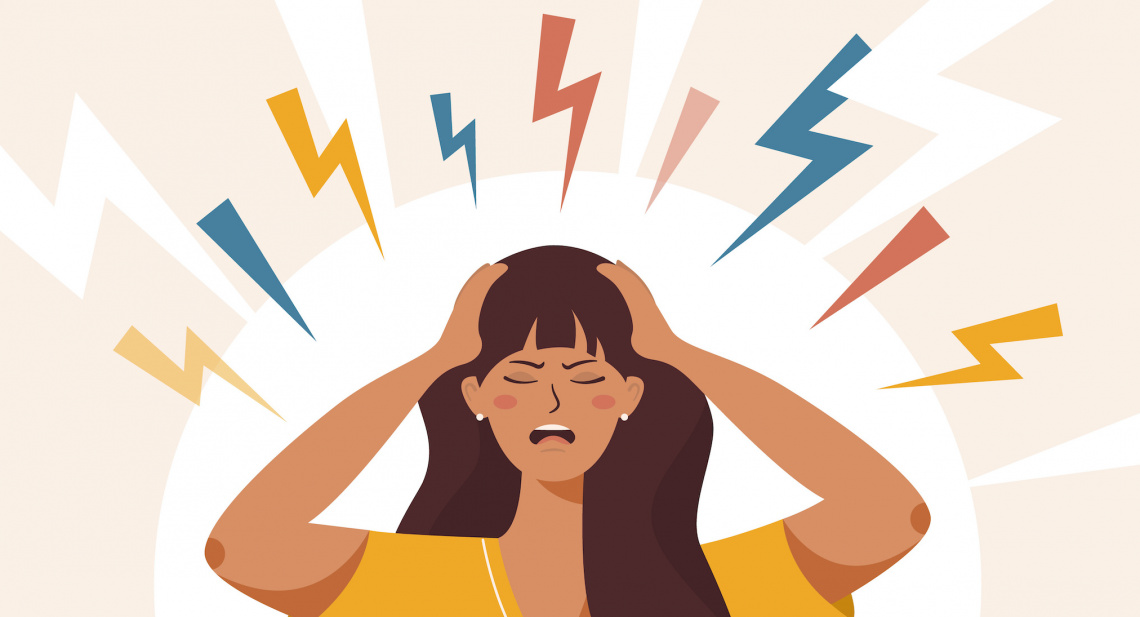In today’s world, stress is unavoidable. But stress is a killer, so limiting or avoiding unnecessary stress is incredibly important for a number of reasons. Outside of things like chronic inflammation, adrenal fatigue and gut issues, new research has found that stress hormones are tied to a higher risk of heart attacks and strokes – regardless of whether or not you have hypertension!
Healthy heart + Stress = Trouble
According to a new study published in Hypertension, spikes in stress hormones can lead to cardiovascular events such as strokes, heart attacks or even heart disease. The study focused on a group of 412 diverse adults between the ages of 48 and 87 who had no hypertension or cardiovascular disease. They measured the urine levels of each participant looking for four stress hormones — norepinephrine, epinephrine, dopamine, and cortisol — and followed up with participants between 2005 and 2018.
The study found that the doubling of cortisol levels resulted in a 90% higher risk of having a cardiovascular event, while each time the combined levels of all four hormones doubled, the risk of developing high blood pressure rose between 21% and 31%. The study also concluded that, when it comes to cortisol and dopamine, the connection between stress hormone levels and hypertension was stronger for younger adults (under 60 years). Meaning that younger adults with an otherwise healthy heart and heightened levels of stress hormones are more likely to develop high blood pressure.
For more on hypertension: Is it stress? Menopause? Or something else?
Stress is relative. This study was objective.
While previous studies have also noted the link between dopamine and cortisol to high blood pressure, this study used an objective measure of stress.
You might be interested: Why you should know more about cortisol
"It is challenging to study psychosocial stress since it is personal, and its impact varies for each individual. In this research, we used a noninvasive measure -- a single urine test -- to determine whether such stress might help identify people in need of additional screening to prevent hypertension and possibly cardiovascular events," said study author Kosuke Inoue, MD, PhD, an epidemiologist at Kyoto University in Japan and at the University of California in Los Angeles.
Though more long-term studies are needed using a larger sample size, increased measurements and varying methods of testing, the study still does point to the importance of taking our psychological stress into account when looking at overall health and how to prevent long-term complications.

What can you do?
Unless we’re sent by our doctors, the likelihood of running to the clinic for a stress hormone test is very slim. But keeping your stress levels in check should be a daily ritual. Remember, stress alone can cause cardiac events, as well as put you at risk of developing hypertension.
Step one: listen to your body. With the world the way it is, it’s easy to be consumed by feelings of stress, frustration and anger… sadness. When things feel overwhelming, it’s important to check in with all the functions of your body – guaranteed they’ll tell you about stress.
Here are a few go-to methods to get your stress hormone levels under control:
-
Know your triggers
When you get stressed out, your body triggers the flight or fight response. Your heart starts pumping faster to keep your blood pressure up so that you’ve got good circulation – an age-old response to get you clear of danger. Take note of stressors so that you can start taking preventative measures.
-
Take action
Once you are aware of your triggers, you can intervene early by using a stress management tool. Think deep breathing (long out breaths), meditation, visualisation, mindfulness, listening to music... whatever works best for you.
-
Look at your diet
You’d be amazed at what a simple change in your diet could do. There are plenty of foods out there that will not only fuel you but are also known to help your body relax. From spinach and green tea to salmon and turmeric, read our guide to foods that help to de-stress. Almost 95% of your dopamine and serotonin production happens in the gut, so make sure you feed it happy foods.
You might also like: Foods to boost your mood
Also, asking your GP to run a urinary stress hormone test to measure progress as you try to take steps to reduce stress in your life can be a great tool to prevent or control hypertension.








Comments